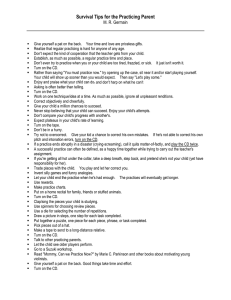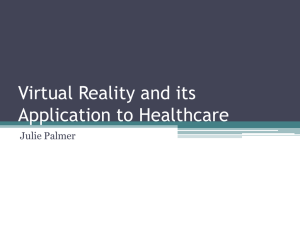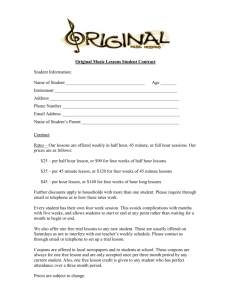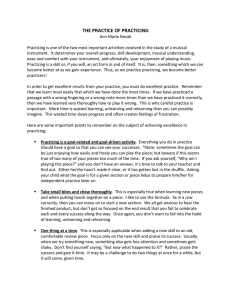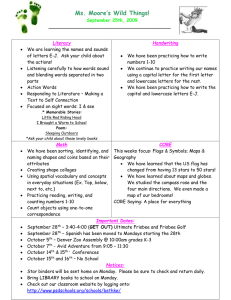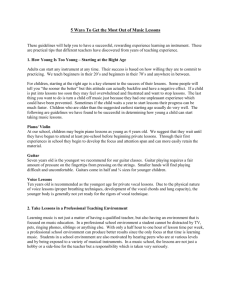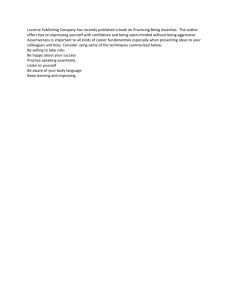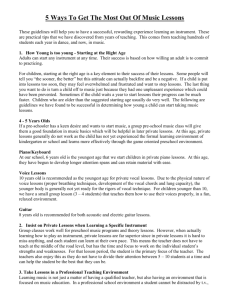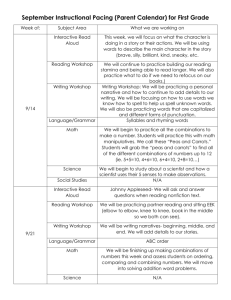Strategic Management
advertisement
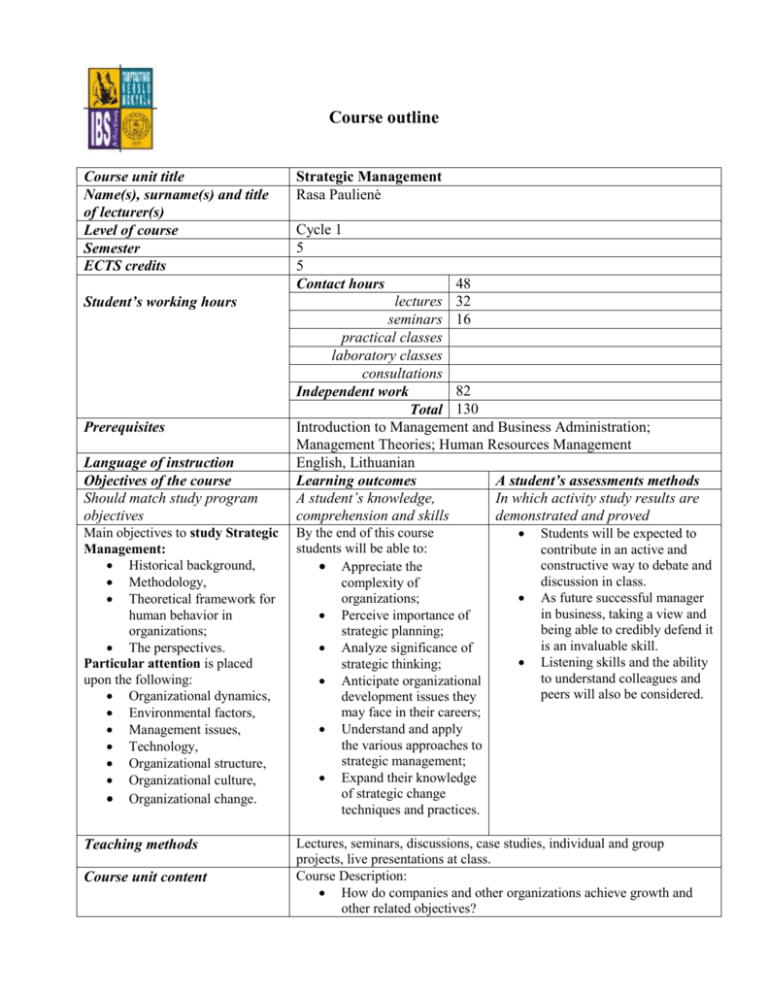
Course outline Course unit title Name(s), surname(s) and title of lecturer(s) Level of course Semester ECTS credits Student’s working hours Prerequisites Language of instruction Objectives of the course Should match study program objectives Strategic Management Rasa Paulienė Cycle 1 5 5 Contact hours 48 lectures 32 seminars 16 practical classes laboratory classes consultations 82 Independent work Total 130 Introduction to Management and Business Administration; Management Theories; Human Resources Management English, Lithuanian Learning outcomes A student’s assessments methods A student’s knowledge, In which activity study results are comprehension and skills demonstrated and proved Main objectives to study Strategic Management: Historical background, Methodology, Theoretical framework for human behavior in organizations; The perspectives. Particular attention is placed upon the following: Organizational dynamics, Environmental factors, Management issues, Technology, Organizational structure, Organizational culture, Organizational change. By the end of this course students will be able to: Appreciate the complexity of organizations; Perceive importance of strategic planning; Analyze significance of strategic thinking; Anticipate organizational development issues they may face in their careers; Understand and apply the various approaches to strategic management; Expand their knowledge of strategic change techniques and practices. Teaching methods Lectures, seminars, discussions, case studies, individual and group projects, live presentations at class. Course Description: How do companies and other organizations achieve growth and other related objectives? Course unit content Students will be expected to contribute in an active and constructive way to debate and discussion in class. As future successful manager in business, taking a view and being able to credibly defend it is an invaluable skill. Listening skills and the ability to understand colleagues and peers will also be considered. What relationship is there between strategy and organization; how strategies are formulated, implemented and controlled; how strategic changes are managed? How do proper management and leadership, motivation and organizational design impact strategy implementation and strategic management? Topic title Contact hours Assignments Introduction to the course. Key terminologies. Importance of strategic management. 4 Material analysis, individual reading; 8 Business management and business policy. Strategic decision making. Strategy formulation, implementation, and evaluation. External analysis. General segments and elements. Internal analysis. 10 Material analysis, individual reading, practicing; 16 8 Material analysis, individual reading, practicing; 14 Types of organizational structures. Corporate culture. Strategy-culture fit. Managing organizational culture and change. Management challenges. Strategic leadership and change management. Management and leadership differences. Role of leadership in implementing strategy and strategic change. 8 Material analysis, individual reading, practicing, homework; Material analysis, individual reading, practicing; 14 Competing in global markets. Adopting organizations to today’s markets. Strategic management processes in practice. Total 10 Material analysis, individual reading, practicing; 16 8 48 Independent study hours 14 82 Reading list Year of publishing Authors and title of the publication Publishing house 2011 2013 Brown D. R. An Experiential Approach to Organization Development. 8 th edition. Parnell J. A. Strategic Management: Theory and Practice. 4 th edition. 2012 Kotter J. P. Leading Change. Prentice Hall Sage Publications Inc. Harward Business Review Press 2013 Ritson N. Strategic Management.2nd edition. http://bookboon.com/en/strategicmanagement-ebook Additional reading Year of publishing 2011 2011 Authors and title of the publication Publishing house Northouse P.G. Introduction to Leadership: concepts and practice. 2nd edition. Kouzes J. M., Posner B.Z. The truth about leadership: no-fads, heart-of-the-matter facts you need to know. 1st edition. Kouzes J.M., Posner B.Z. The Leadership Challenge. 4th edition. 2007 Assessment requirements Assessment criteria Individual work (in writing and live presentation in class); Final exam (open answers to questions in writing). Knowledge of the subject, creativity; active and constructive way to debate and discuss in class; listening skills and ability to understand colleagues and peers; effective individual work. The composition of final accumulative mark Final Accumulative Mark = 0,3 Individual work (presentations at class) + 0,3 Mid Term Exam (4 questions in writing) + 0,4 Final Exam (4 questions in writing) Notes: In each case as above only mark 4,5 and higher is accepted. Attendance of seminars is obligatory. Rasa Paulienė Course outline arranged by Approved by the Study Program Committee
